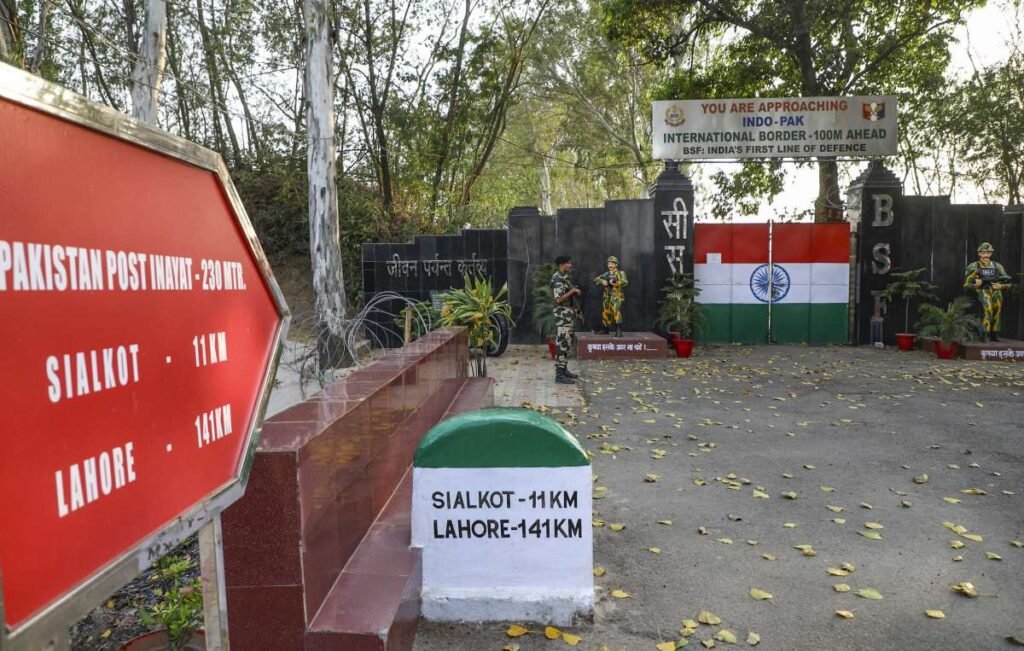Pakistan depends on India for 30–40 percent of its pharmaceutical raw materials, including critical products like vaccines and cancer therapies. The government is now exploring alternative sources from China, Russia, and Europe.
Pakistani health authorities have initiated “emergency preparedness” measures to secure pharmaceutical supplies following the suspension of trade ties with India, according to a media report on Saturday. Islamabad announced the suspension of all trade with New Delhi on Thursday, in response to India’s decision to freeze the Indus Water Treaty after the deadly terror attack in Pahalgam, Jammu and Kashmir. The attack, claimed by The Resistance Front (TRF), a proxy of the banned Lashkar-e-Taiba (LeT), left 26 people dead, mostly tourists, marking the deadliest strike in the Valley since Pulwama in 2019.
According to Geo News, Pakistan’s trade halt with India triggered urgent measures to secure pharmaceutical needs. Health authorities have activated contingency plans to protect the country’s drug supply chain. The Drug Regulatory Authority of Pakistan (DRAP) confirmed that while no formal notification has been issued regarding the ban’s impact on the pharmaceutical sector, preparations are already underway. “Following the 2019 crisis, we had started preparing for such contingencies. We are now actively looking at alternative avenues to meet our pharmaceutical needs,” a senior DRAP official was quoted as saying.
Pakistan currently relies on India for 30% to 40% of its pharmaceutical raw materials, including Active Pharmaceutical Ingredients (APIs) and various advanced therapeutic products. With this supply chain disrupted, DRAP is now seeking alternative sources from China, Russia, and several European countries to maintain the availability of essential medical supplies such as anti-rabies vaccines, anti-snake venom, cancer therapies, monoclonal antibodies, and other critical biological products.
Pharma crisis looms
While DRAP’s preparedness has offered some reassurance, industry insiders and health experts have warned of looming shortages if swift action is not taken. “Pakistan imports some 30%-40% of its pharmaceutical raw material from India. We also import finished products, most importantly anti-cancer therapies, biological products, vaccines, and sera, especially anti-rabies vaccine and anti-snake venom from India,” a senior official from the Ministry of National Health Services, Regulations and Coordination said, speaking on condition of anonymity. The Ministry of Health has not yet received a formal directive clarifying the status of pharmaceutical imports, even as the government’s blanket trade suspension remains in effect.
The pharmaceutical sector fears that prolonged disruption could lead to critical shortages of life-saving drugs. The situation is further complicated by a robust black market for medicines smuggled into Pakistan via Afghanistan, Iran, Dubai, and the eastern border. While these channels help bridge supply gaps, they offer no guarantee of quality or consistent availability, the report said.
Traders appeal for sector exemption
In an attempt to avert a crisis, a delegation of pharmaceutical industry leaders travelled to Islamabad on Thursday, appealing to authorities to exempt the sector from the trade ban. “We had meetings with DRAP and Ministry of Commerce officials to discuss the suspension of trade ties. We urged them to exempt the pharmaceutical sector from the ban, as there are many life-saving products whose raw materials come exclusively from India,” said Tauqeer-ul-Haq, Chairman of the Pakistan Pharmaceutical Manufacturers Association (PPMA). The delegation also approached the Special Investment Facilitation Council (SIFC), arguing that pharmaceutical and health-related imports must be protected to safeguard public health.
Some experts, however, view the crisis as a potential catalyst for reform. “This crisis could be a turning point for Pakistan,” said senior public health expert Zafar Iqbal, emphasising the need for long-term investment in domestic production of APIs, vaccines, and biological products.
(Based on PTI inputs)
